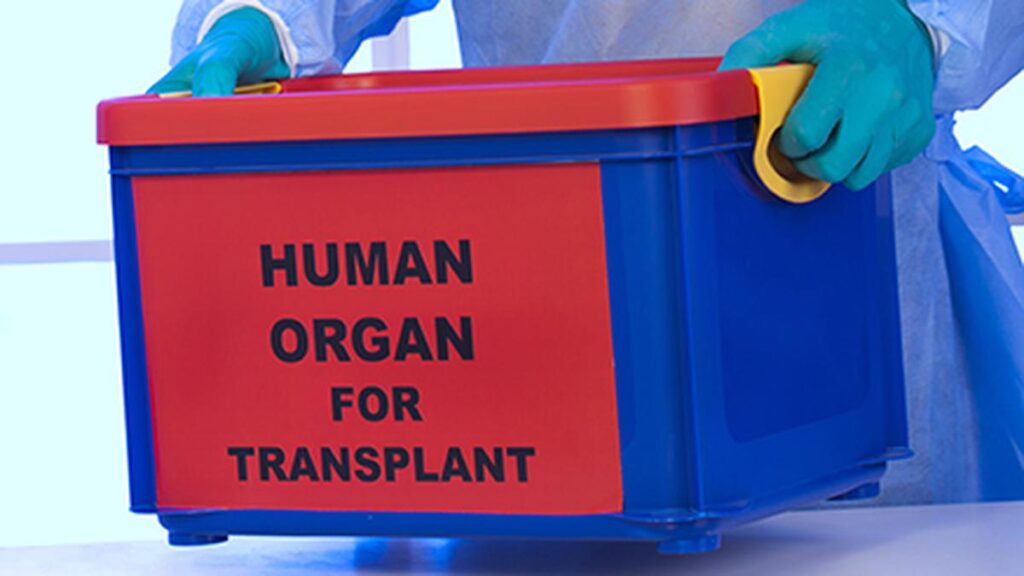970x125
As of March 2020, more than 1,12,000 Indians were waiting for a transplant, and a new name was added to the national transplant waiting list every 10 minutes. Image used for representational purposes only
| Photo Credit: Getty Images
970x125
August is a special month for organ donations. Indian Organ Donation Day is observed every year on August 3, commemorating India’s first successful deceased donor heart transplant on August 3, 1994. On this day, people from various organisations honour the lives of organ donors. The purpose of celebrating this day is to create awareness about deceased donor organ donation and its impact on improving patient quality of life. Additionally, World Organ Donation Day is marked on August 13, to raise awareness about the importance of organ donation and to encourage people to consider becoming organ donors.
The importance of organ donation
As of March 2020, more than 1,12,000 Indians were waiting for a transplant, and a new name was added to the national transplant waiting list every 10 minutes. As per a 2020 research report in India, every day, 20 patients who are in dire need of an organ transplant die due to the unavailability of organs. Raising awareness about organ donation is an important way to help clear the lacunae between the number of persons in need of organ transplants and the number of donors, and to create a platform to encourage more people to be front-line soldiers for a noble cause.
According to the Global Observatory on Donation and Transplantation, India’s organ donation rate has increased from 0.05 per 10 lakh population to 0.8 per 10 lakh population in the duration of a few years. However, it presents a stark contrast when compared with other countries: Croatia’s 36.5, Spain’s 35.3, and the United States 26 per 10 lakh populations, respectively.

Types of organ donations
There are different types of organ donations: people can donate an organ or part of their organ while alive, to benefit a patient, or can be an organ donor after their death, once consent is obtained from their family. Here is a breakdown of how organ donation works:
Living donor organ donation:
Any person not less than 18 years of age, who voluntarily authorises the removal of any of his organ and/or tissue, during his or her lifetime, as per prevalent medical practices for therapeutic purposes. Living donor organ donation: A person, during his/her life can donate one kidney (the other kidney is capable of maintaining the body functions adequately for the donor), a portion of pancreas (half of the pancreas is adequate for sustaining pancreatic functions) and a part of the liver (the segments of the liver will regenerate after a period of time in both recipient and donor).

Deceased donor and deceased donor organ donation: Anyone, regardless of age, race or gender, can become an organ and tissue donor after his or her death (brainstem/cardiac). Consent of near relative or a person in lawful possession of the dead body is required. If the deceased donor is under the age of 18 years, then the consent from one of the parents or any near relative authorised by the parents is essential. Medical suitability for donation is determined at the time of death. A person can donate multiple organs and tissues after (brain-stem/cardiac) death. His/her organs continue to live in another person’s body. Each potential donor can save up to eight lives, of persons who are in need of organs such as the liver, kidneys, intestines, lungs, heart, and pancreas. In addition, they can vastly improve the quality of life for countless more by donating bone, skin, heart valves, corneas etc.

How do you become an organ donor?
You can become a donor by expressing your wish to do so on an authorised organ and tissue donation form. You may pledge to donate your organs by signing up on https://notto.abdm.gov.in/ and registering yourself as a donor, or, for offline registration you may download Form 7 from the website and mail to NOTTO’s address in New Delhi.
It is important to remember that not all people who pledge to donate their organs are suitable for organ donation. Only a few people die in circumstances where they are able to donate their organs. That is the reason we need more people to take the pledge for organ donation and register themself as potential donors.
Through organ donation, part of you continues to live, even after your death.
(Dr. Idhayachandran N. is with the department of nephrology, Naruvi Hospitals, Vellore. idhayachandran.n@naruvihospitals.com)
Published – August 07, 2025 02:48 pm IST
970x125

